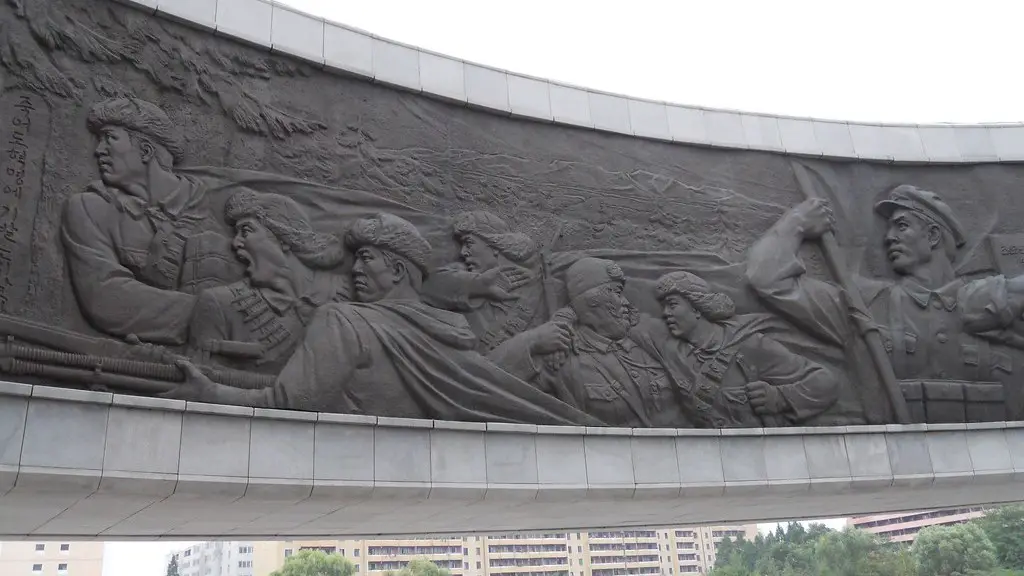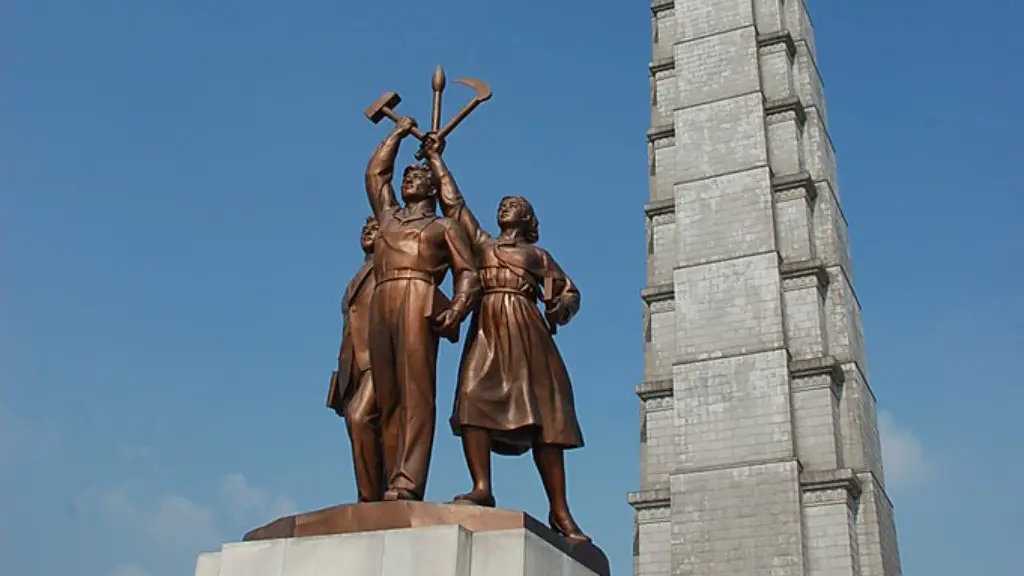Economic Struggles
North Korea is widely known for its backwards economy and grim living standards that are far from the basic necessities that the rest of the world take for granted. It’s majorly agricultural based economy relies heavily on imports for much of its foodstuffs, with a lack of resources and electricity hindering development. North Korean citizens anguish under this depression, as they suffer from malnutrition, poverty, and a life full of economic difficulty. The government heavily taxes incomes and citizens find it hard to make even modest sums. Nearly 90% of citizens earn less than a dollar a day and unemployment sits at an estimated 35-40%. The lack of financial means to keep ahead of the times has fuelled the economic depression that plagues the nation.
The elite few connected to the government are the ones that benefit from this poverty by taking advantage of the disparities in payments made to citizens and their own privileges of economic security. This highly unfair system leaves the upper class living lavish lifestyles while their people suffer in the dark. This has resulted in a nation of inequality, further darkening the gloom that North Korea faces economically.
Political System
North Korea is a highly oppressive nation, and this is fueled by its repressive political system. Its citizens lack the freedom to express their own opinion, giving the government an unimpeded level of control over their nation. The totalitarian regime of the nation is a source of fear and despondency amongst its citizens, with reports of brutal punishments of those who disagree with the government. This lack of freedom combined with the total control the government exerts produces an environment of despair for the citizens.
The government regularly censors any ideas or actions that are not in line with the teachings of North Korea’s past rulers, and its propaganda apparatus is used to exert its authority at all levels of society. Citizens are not allowed to access or utilize the internet or freely contact foreigners if they are unhappy with their nation’s state of despair. With all forms of communication and information highly regulated, citizens see no other option but to endure and accept the government’s oppressive policies.
Social Issues
The North Korean public and its citizens have to battle a range of social issues in order to just exist in the nation. With a sizable homeless population, and the lack of food, clean water and access to proper healthcare, their environment is hardly conducive to a joyous life. Citizens of North Korea must cope with an immense feeling of helplessness, as they are unable to escape the social issues that befall the nation.
Conflicts between South Korea and North Korea have left lasting scars on its citizens that put a strain on daily life. The constant tension between the two countries is palpable to the North Korean citizens, and this fear of a potential impending war undoubtedly dampens the spirit of its populace.
Restrictive Government
Under the oppressive North Korean regime, access to foreign media and communication with the outside world is banned. This serves to isolate the nation from the rest of the world and prevent citizens from obtaining information on their options to transfer to other nations. Public gatherings, protests, and religious activities are heavily monitored by the government and unpleasant actions are taken against those who disagree with the government. North Koreans have little access to the internet, beyond closely controlled news services.
This further exacerbates feelings of helplessness and despondency as oppressed citizens see no way of escape from their struggles and current state of affairs. The government is highly restrictive, and its totalitarian rule keeps the people of North Korea in a low spirit.
Cultural Deprivations
Cultural deprivations in North Korea are at an all-time high, with very little sources of entertainment and leisure available. Citizens are banned from accessing foreign products, music and television programs, leaving them with a limited amount of culture to consume. This, combined with the lack of economic independence, has resulted in a repressed and depressed citizenry in the nation.
The oppressive nature of the government has come to a head, creating an overwhelming sense of depression amongst the nation’s citizens. The lack of resources for leisure, the lack of financial independence, and the repressive nature of the government leave citizens with very little to enjoy, and it has resulted in a bleak atmosphere of gloom.
Psychological Impact
The oppressive and depressing environment that pervades North Korea leaves psychological and emotional scars on its citizens. With no way to escape their destitution, the despondency is taken out on the public and manifests in substance use, domestic and sexual abuse, mental illnesses, and suicide. This concerning development affects the nation’s citizens acutely, as they feel an immense sense of helplessness.
The oppressive government and its totalitarian rule only serves to worsen this sense of despair and hopelessness. Citizens feel let down by their nation’s leadership and find it hard to accept the situation they are over, leading to a low collective spirit in most areas of North Korean life.
Repercussions of Oppression
The intense pressure and feeling of helplessness is leading to a large number of people in North Korea fleeing the nation in search of a better life. Citizens desperate for a way out of the oppressive conditions see leaving as their only option, and are willing to do whatever it takes to escape the nation. This contributes to the North Korean DIASPORA, with a sizable number of North Koreans spread around the entire world.
Those who have managed to migrate out of North Korea face considerable resettlement costs, having to start from the bottom again in search of a better life. Unfortunately, these migrants come from impoverished backgrounds and find it hard to reestablish themselves in their new locations. They face a barrage of negative stigmas and face an uphill battle in finding gainful employment and a place in their new society.
Lack of Human Rights
The population in North Korea is exposed to various human rights violations, with citizens often denied the right to express their own opinions and feeling oppressed by their government. This lack of human rights raises the feeling of depression and despondency amongst the public, leaving them feeling trapped and hopeless.
The government of North Korea subjects its citizens to organ harvesting, public executions, torture, and forced live organ donation. Citizens cannot seek justice for their wrongdoings having to feel compelled to toe the line of their oppressive rulers. This leaves them in a state of fear and oppression that clouds their view of the nation’s future, leading to low morale and apathy towards the state of their nation.
Lack of Opportunity
The economic struggles and social issues of North Korea are two sides of the same coin, and their oppressive government only serves to deepen the despondency of the nation’s citizens. The lack of economic opportunities and political freedoms leave the population with little hope and a feeling of helplessness that further contributes to the nation’s depths of depression.
The grim atmosphere that pervades North Korea is a combination of the economic and political situations, the oppressive government rule, and the lack of human rights. This has left its citizens without a light at the end of the tunnel, as they suffer immense misfortune in their daily lives and are unable to escape the nation’s state of despair. In order for North Korea to escape its oppressive conditions, its citizens must be given political, economic, and social freedoms in order to be able to move out of the darkness.


